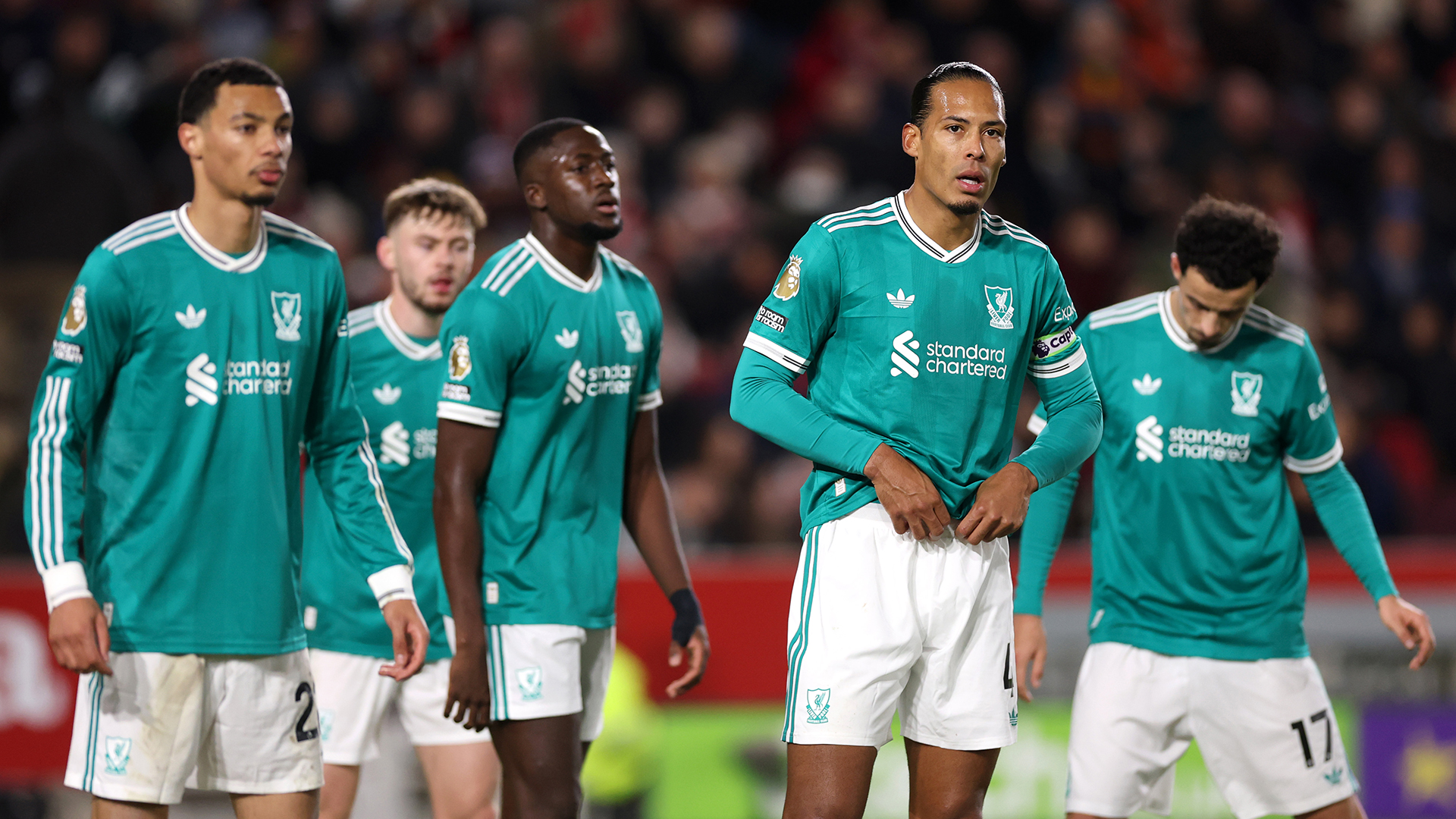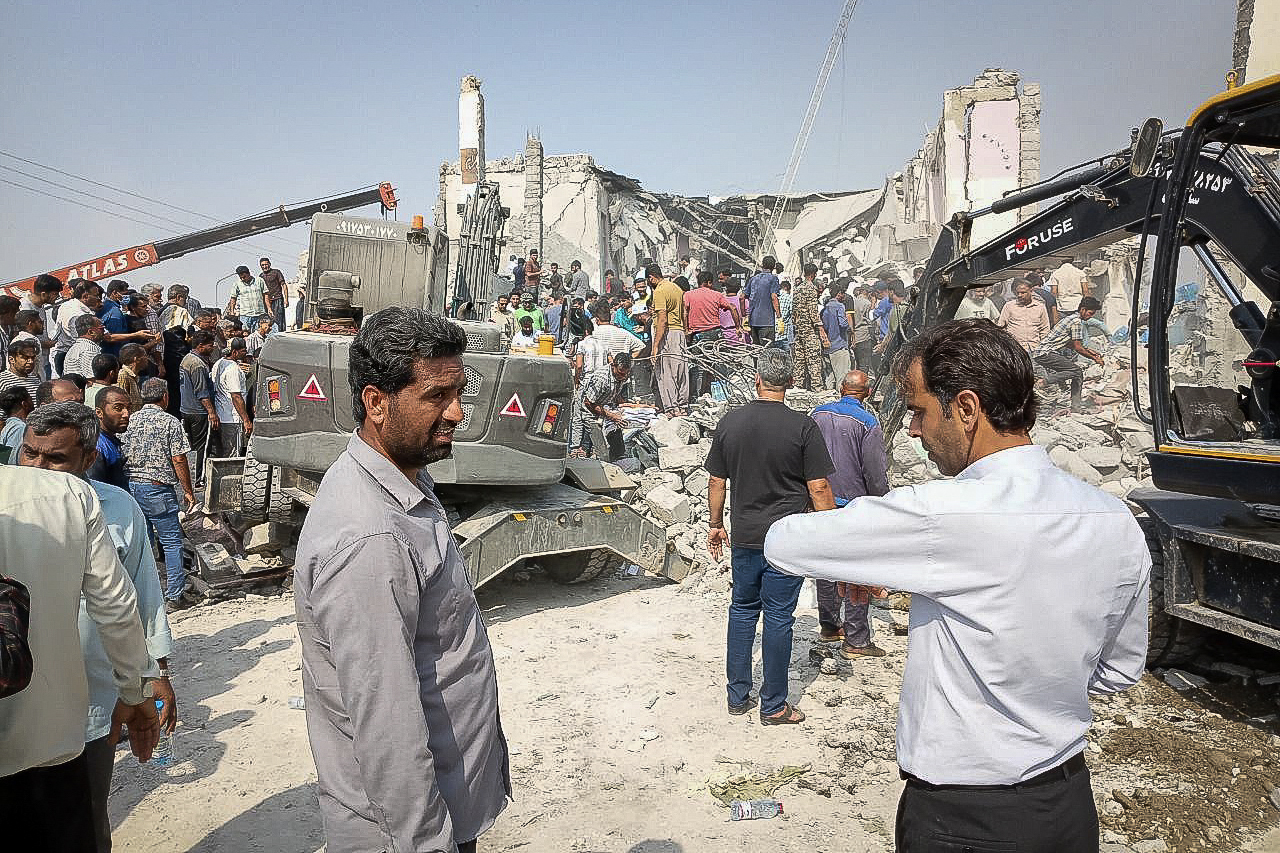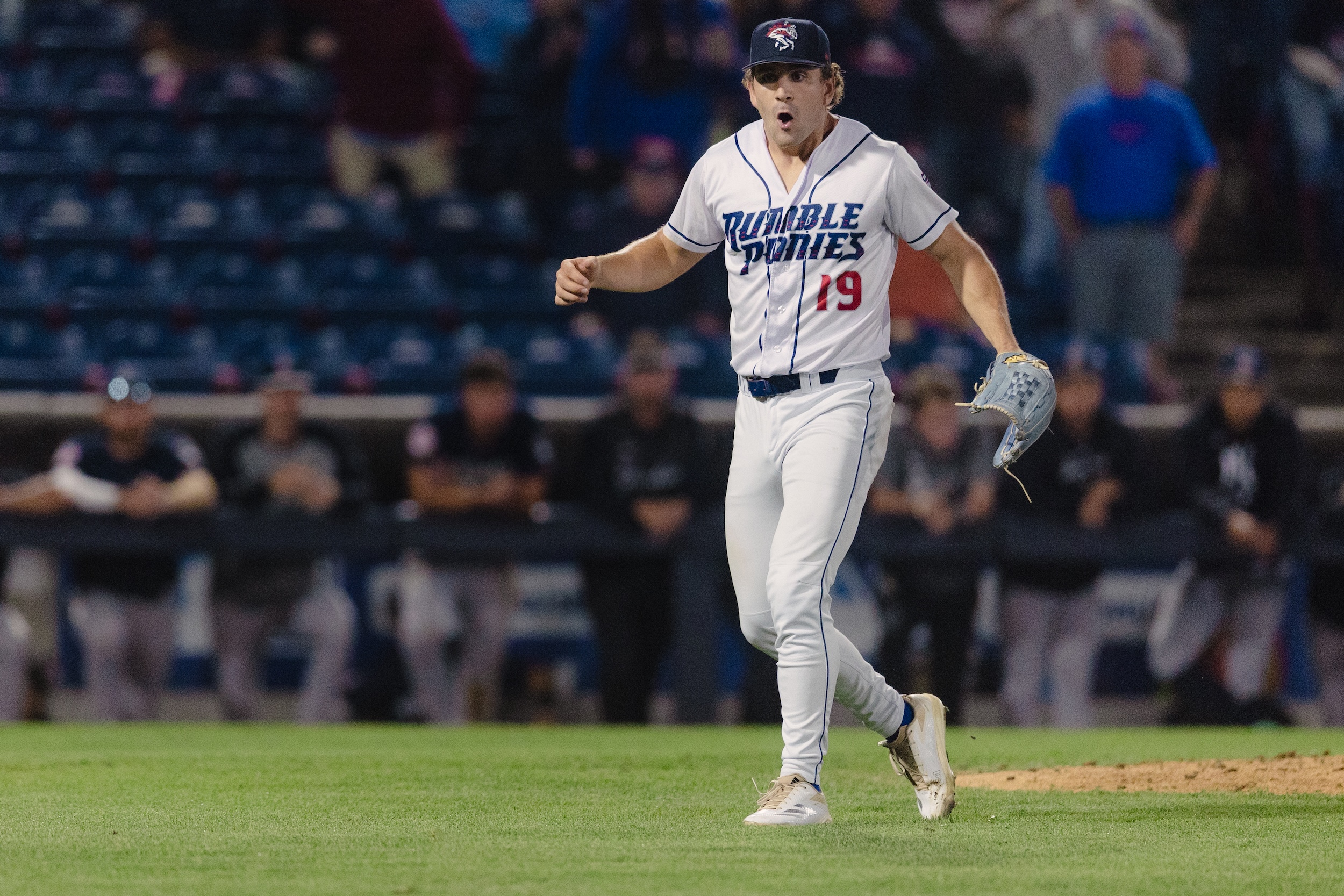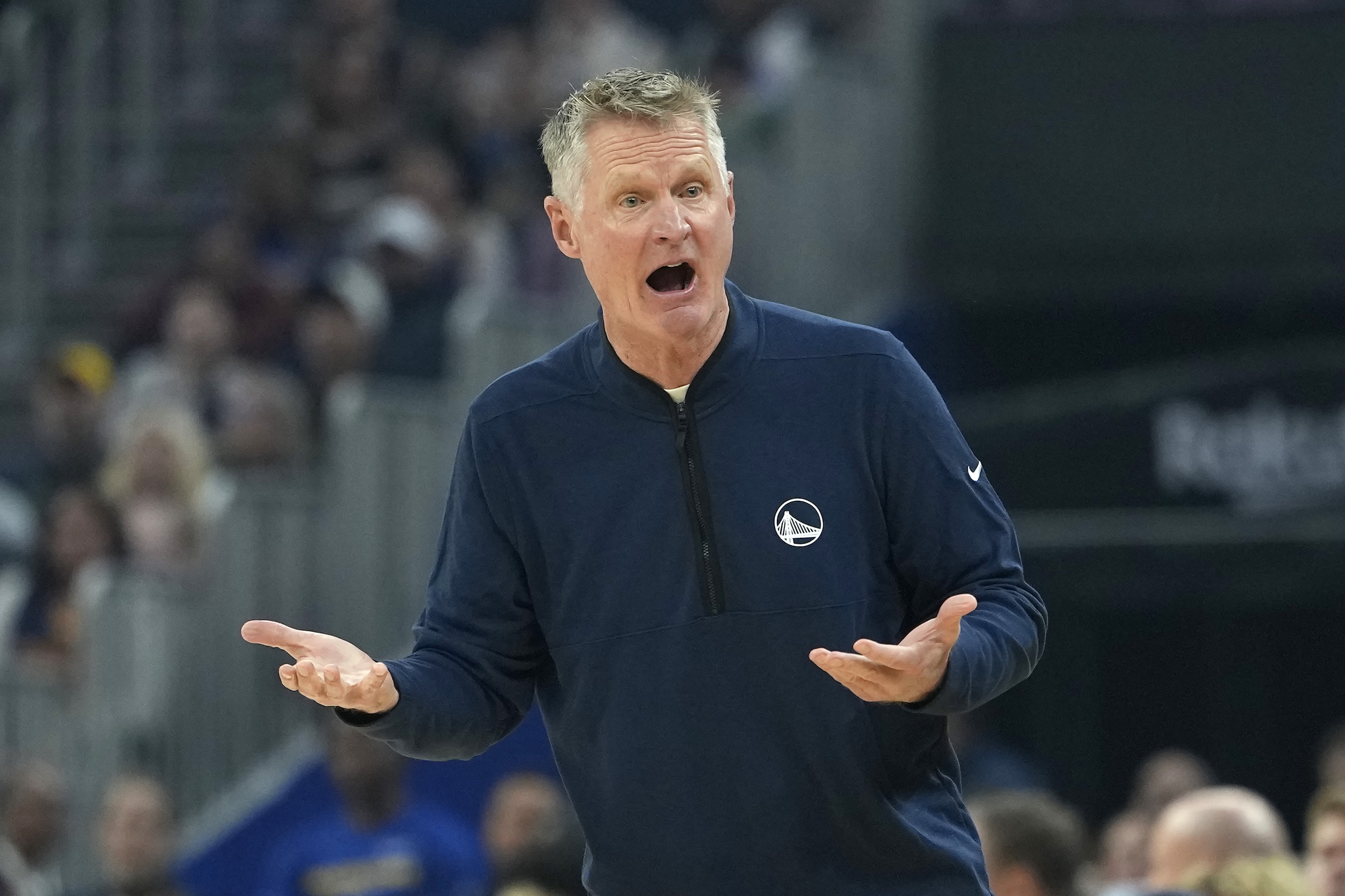Even though Liverpool opened this Premier League season with five straight wins, the cracks in the defending champion's armor were clear for all to see. Sure, as a fan, it was fun to watch the Pool Boys pull off miracle after miracle, and in my most biased moments, I thought that magic could propel the side forward. But those cracks have only deepened since the start of the campaign, and now Liverpool is in full-blown crisis. Since beating Everton for its fifth-straight win domestically and then, nervously, dispatching second-division Southampton in the League Cup, Liverpool has lost five of its last six games across all competitions, its only win coming last week in a 5-1 Champions League thrashing of Frankfurt.
At the time, that big UCL win felt like a potential turning of the corner, but Saturday saw Liverpool lose its fourth-straight Prem match—the first time that's happened since its last title defense, back in February of 2021—dropping all three points to Brentford by way of a 3-2 scoreline.
Of Liverpool's recent losses, the Brentford defeat is the one that best highlights all the issues behind the side's struggles over the past month. Liverpool was torn apart in defense, and struggled to create anything resembling a fluid attack. While scoring two goals will often be enough to win in the Premier League, Liverpool looked meek for most of the match, and Brentford, to its great credit, repeatedly pounced on the gaps in Liverpool's defense. The Bees came away with a deserved win, and now Liverpool has to figure out its issues across every level of the field. What are those issues? Come with me on a journey of Merseyside misery.
Defense
As has become something of a trend during this patch of horrid form, Liverpool conceded early to Brentford by way of a fifth minute Dango Ouattara volley, and never truly caught back up with the Bees. In every game the club has lost during this streak, the defense has conceded a goal within the first 16 minutes of action, immediately putting a strain on the whole side. This is a bad formula for anyone, but Slot's Liverpool has thrived by controlling the chaos of its ever-churning machine. By ceding control to opponents, everything stretches, and more often that not, the Liverpool defense has been the thing to break.
Simply put, teams have found out how to attack this backline, particularly by aiming at the two underperforming center backs. Ibrahima Konaté has been wildly inconsistent this season, but leaning more towards poor performances as he seems out of sorts and prone to mistakes. This was a problem even during the winning streak, and it's become more pronounced as the team's form dipped. However, in seasons past, perhaps this would have been manageable if not for Virgil van Dijk's own decline.
Van Dijk has been the best center back in the world for at least half a decade, but his play this year has been marked by mental errors and physical timidity, which has left Liverpool with wide-open spaces in defense. Take Brentford's second goal on Saturday: Van Dijk was caught in no man's land shading towards the ball, so much so that when Mikkel Damsgaard hit a long ball to Kevin Schade, the Dutch bulwark was nowhere to be found. Add in Konaté's complete failure to block off the run, and this was one of the easier goals Schade will ever score:
Van Dijk was also partly at fault for Brentford's third, thanks to a clumsy tackle right on the edge of the box that was given as a penalty, converted by Igor Thiago:
In addition, the club's new full-back duo has struggled mightily. Milos Kerkez is an adventure on the left side, as capable of scoring a big goal as he is of completely forgetting his purpose and allowing opposing right-side attackers free rein. On the other flank, neither Conor Bradley or Jeremie Frimpong have been able to improve at all on Trent Alexander-Arnold's poor defending. In sum, this is just not a championship-caliber defense right now. (Alisson's injury isn't quite the same level of problem, as substitute goalkeeper Giorgi Mamardashvili has been serviceable, but Liverpool does seem to play with more confidence with its starting goalie standing between the sticks, so it's something to note.) What hasn't helped is that the backline has been called into action more often than last season, which leads to the next, almost equally problematic area of the field ...
Midfield
Of the three levels of the field, the Liverpudlian midfield struggles are perhaps the most mundane and the most understandable. Alexis Mac Allister's early abductor muscle injury, which he has mostly played through, has hamstrung Liverpool's ability to exert the control it seeks. The main midfield trio of Mac Allister, Ryan Gravenberch (also injured now after picking up an ankle knock against United), and Dominik Szoboszlai worked in perfect unison last year, but they've not been able to maintain that harmony this time around. Szoboszlai is mostly innocent here; he's been great both in midfield and when deputizing at right back (it's concerning that he's been the best defensive option for Slot in that position, but as mentioned above, that has more to do with Bradley and Frimpong struggling). But without Mac Allister physically able to properly link play from the deep midfield into the front three and to win back lost possession, Liverpool's control center has been out of order.
Against Brentford, neither Mac Allister nor Gravenberch played. In their stead stood Curtis Jones, a fine enough substitute player, one of the most daring (this is both a compliment and an insult) dribblers on the squad, and certainly the most single-minded in his pursuit of attacking at all costs. Putting him and Szoboszlai as the only true midfielders in the lineup guaranteed that Liverpool would cede midfield control, though, and Brentford certainly exploited that with quick attacks.
It's here that I can first mention the €125 million elephant in the room, and that is Florian Wirtz. The former Leverkusen star has thus far failed to adapt to his new league and team, and though counting stats aren't everything, it's striking that Wirtz has only notched two assists and no goals so far. Wirtz hasn't been quite as bad as his stats might suggest, but he's unquestionably looked ... off. That's a feely bit of analysis, but that's the conclusion you're left with when watching him. Wirtz will often get into correct positions with and without the ball, but his his decision-making and execution just aren't there, and his confidence seems to be tanking. There were multiple instances against Brentford where Leverkusen Wirtz would have taken a shot on goal, but he instead instead demurred. It's been rough to find a spot for the German by sacrificing another body in the true midfield, and the trio of Wirtz, Jones, and Szoboszlai is Liverpool's weakest combination defensively, as Brentford gleefully exploited on Saturday.
Attack
Of course, even when Liverpool had some defensive lapses last season, it still kept winning thanks to its vaunted attack. The failures of the various front threes this season, with one rousing exception, have made it impossible to brute-force wins with sheer star power. I have to start here with Mohamed Salah. Last season, the Egyptian was hands down the best player in England and was one of the four or five best players in all of Europe. This season, though, Salah has borne out the doubts the club had about handing a big contract to a winger on the wrong side of 30.
Salah has looked slow and has been inefficient both with the goal in his sights and in terms of beating his defenders off the dribble or on pure pace. At 33 years old, this is understandable. Salah has a lot of high-intensity miles on his legs, and it stands to reason that his pace would start to bottom out somewhat. What's more concerning is his inability to get separation even in small spaces, where pace is less important than technique. Without pace or dribbling, Salah becomes muted, and his stat line to start this season—just three goals, albeit with a vintage Salah banger on Saturday to give Liverpool hope—speaks to his ineffectual form.
I think Salah's inevitable decline is part of why Liverpool went bonkers in the transfer market this summer, which was smart. Unfortunately, though, two of its three big attacking signings haven't paid off yet. I already covered Wirtz's rough start to life in Merseyside, but Alexander Isak's poor showings are harder to explain. Isak was a demon for Newcastle United, terrorizing Premier League defenses for three seasons before becoming a Red. How does one explain, then, his almost complete shutout of goals in eight appearances for Liverpool? (His only goal so far came in the League Cup against Southampton.) In part, it could just be down to playing time. Isak missed the start of the season with fitness concerns, after sitting out of Newcastle training and matches ahead of his move, and now he's injured again. Perhaps once he gets back to full health the goals will come back too, but the early returns on his €145 million move have been poor.
If there's a bright light here, it's in the form of Hugo Ekitike. The former Frankfurt striker has been the best performer of Liverpool's summer signings. His numbers aren't eye-popping—five goals and one assist in all competitions—but he has been a hard worker and has developed good link-up play with the midfield. Ekitike might be the answer for the foreseeable future at the No. 9 spot, but he's going to need help from Salah and relief from Isak, two things that I don't think anyone expected to be necessary heading into this season.
By any reckoning, Arne Slot has a lot of work to do. The Dutch manager came in and immediately won the Premier League, which is one of the hardest things to do in world soccer, but this season is his first true test. With just some slight tweaks to the squad and style he inherited from Jürgen Klopp, Slot got the team firing on all cylinders, to his immense credit. To highlight one effective tactical shift, what Slot has done for Gravenberch, a bench warmer under Klopp, has been masterful. But now, with a fully rebuilt squad, Slot is struggling to hit upon a system that incorporates all of this new talent and covers for the aging stars' declines.
Calls to sack Slot have already begun from the more emotional sectors of the Liverpool fan base, though even contemplating such drastic measures this early would be a mistake. This was always going to be a tough, transitional season, and that's even before factoring in Diogo Jota's death and the effect it has likely had on his former teammates. As impossible as it is to quantify that grief from the outside, it's just as impossible not to account for it when considering the pressures and difficulties the club has had to endure in its aftermath.
What is clear is that something isn't working, and Slot has to be the one to figure out how to put his struggling players in the best positions to perform. There's more than enough talent on this roster to avoid a four-game domestic losing streak, and it's not like the schedule has been particularly difficult; the four losses have come to Crystal Palace (which hasn't won a game since beating Liverpool), a mercurial Chelsea, the previously morose Manchester United, and now Brentford, which entered Saturday's match in 13th place. Unfortunately for Slot and his charges, the schedule actually does become brutally difficult now: After a midweek cup tie against Palace and a home match against Aston Villa (which just beat Manchester City and appears to be on the bounce back after its own rough start to the season), Liverpool then hosts Real Madrid in the Champions League and travels to Manchester for a match against City, all in five days.
Slot and the players have come up with some answers fast, or else things could go from bad to horrendous in a hurry. After all, if Liverpool can't defend against the Brentfords of the league, how will it cope with Kylian Mbappé and Erling Haaland? This is the question that will loom over the Reds as they look to get back to something resembling title-contending form, or this could become a fight for European spots faster than anyone expected.






